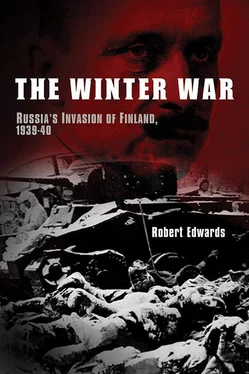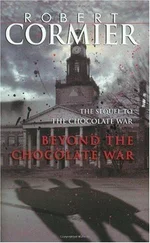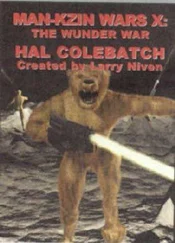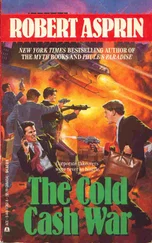Of 75 mm calibre, and thus perfect for the task in hand.
See Langer & Gleason, The Challenge to Isolation, pp. 338-9.
Ibid., p. 339.
Ironside, op. cit. , p. 217. The guns would be sent, in fact, arriving after the end of the war—but only after prolonged haggling.
Langer & Gleason, op. cit. , p. 14.
It will not be forgotten that it was only Hitler’s declaration of war on the United States at the end of 1941 which prompted American involvement in the Second World War. Policy prior to that was, unarguably, to bleed Britain.
J. L. Harper, American Visions of Europe—Franklin D. Roosevelt, George F. Kennan and Dean G. Acheson, 1996, cited by Robert Kagan, Paradise and Power, p. 70.
White wasn’t anywhere near it, of course.
Interestingly, when the play was filmed, the theatre of war was switched to Hungary in 1956—Sherwood himself died in 1955, and unavoidably, some of the impact was lost.
At this very point. By way of comparison, the Red Army assault on the Isthmus contained within it approximately four times the artillery assets as later deployed by General Montgomery at El Alamein.
Arkady Ermakov (1899–1957) served later as deputy commander of the Bryansk Front during Barbarossa. Filipp Alabusher (1893–1941), later commander of the 87th Rifle Division, was killed in action in the opening phase of Barbarossa.
100 grammes per man—a decent slug.
Chew, The White Death , p. 152.
Named for its cost—Lieutenant Poppius was the commander of the other one.
The 123rd was even the recipient of a long ode, written by the journalist Tvardovsky (he of Vasia Tërkin). It is worthy of William McConagall (or even Kuusinen) and far too tedious a work with which to trouble the present reader.
An interesting contrast is observable between Norwegian public and private attitudes. When the German Naval attaché in Oslo, Schreiber, interviewing the Norwegian Admiral Diesen, demanded to know why he had exhibited such a ‘weak attitude’ in dealing with the Cossack, ‘he replied only by shrugging his shoulders’. Koht, true to form, issued a violent protest. Documents On German Foreign Policy, Series D, vol. VIII, no. 618.
Tukhachevski’s assault on Kronstadt in 1921 had been carried out in similar conditions.
The Russians had noted that the Finns invariably whitewashed captured equipment, but inexplicably failed to do this themselves.
On 6 January, for example, two Finnish Fokker D21 fighters had destroyed all seven of a flight of DB3 bombers—in five minutes.
See Jukka L. Mäkelä, Suomi taisteli: Sotiemme suurlukemisto (W. Süderstrom, 1977), pp. 146-151. Translated by S. Korhonen (with thanks).
Ironside, op. cit., p. 216.
Not the least reason being, one imagines, that they felt that the army would be needed—when the Allies arrived. But, as has been noted, 8,000 volunteers did go to Finland.
Cadogan Diary (ed. D. Dilks), p. 255.
Tanner, The Winter War, p. 177. Quite what gave Vereker the idea that anyone would believe this is unclear.
Chasseur equivalent to Jäger, or light infantry.
Later Field Marshal, the Viscount Alanbrooke.
Alanbrooke Diary, 8 February 1940, see Bryant, The Turn of the Tide, p. 76.
Brooke to Dill, 11 February 1940, cited by Bryant, The Turn of the Tide, p. 77.
Documents on German Policy, Series D, vol. VIII, no. 654.
Case Weser Exercise, Directive 10A, 1 March 1940.
The Marshal did not like Wallenius at all; in his Memoirs he does not mention him even in passing, which might be quite understandable but rather tends to discount the success which this ‘difficult’ general had enjoyed in the far north. His crime, in Mannerheim’s eyes, was simple lack of grace under pressure.
By a circuitous route. Tanner stated in his account that Blücher’s communications were, naturally, extensively bugged.
Documents on German Foreign Policy, op. cit., no. 628.
He remained in post until the end of the war.
Documents on German Foreign Policy, op. cit., no. 650.
Hitler fobbed him off with concerns re: Göring’s health precluding him from being consulted, never mind that when the Weserübung plan broke cover, Göring was fit enough and working hard to entertain the charmless American envoy Sumner Welles at Carinhall.
See Leonard Mosley, The Reich Marshal, ch. 18, for insights on these and other matters.
Ibid., p. 301.
Just over a month later, Stalin himself recalled the moment in rather earthier terms: ‘Either you, Messrs. Finnish bourgeois, make concessions, or we will impose a government under Kuusinen on you which will disembowel you…’. Chubaryan & Shukman, Stalin and the Soviet-Finnish War, p. 266.
Molotov: ‘Why stop the fighting if one cannot rule out the possibility of having to resume it over a difference?’ See van Dyke, Soviet Invasion of Finland, p. 175.
See n. 14, ch 9, German General Staff Report on Red Army.
Documents on German Foreign Policy, op. cit., no. 663.
As opposed to c. 750–800 men, i.e. two-thirds losses.
Jakobson, The Diplomacy of the Winter War, p. 251.
Mannerheim, Memoirs, p. 387.
French Ambassador to the Court of St James.
Ironside, op. cit., p. 226.
It did, too; less than a year later the poor man had a stroke, collapsing in Mannerheim’s arms.
Ironside, op. cit. , p. 227.
Kennedy, The Business of War, p. 49.
Tr. By Joseph Chitty, 1834, p. 445.
He was presumably philosophical; the Suite on Finnish themes was never listed in his official oeuvre.
Gripenberg, Memoirs, p. 145. In fact, despite this lapse, Gripenberg was rather kind about Halifax in his memoirs.
A. Géraud (Pertinax), Les Fossoyeurs, vol. I, p. 197.
Читать дальше











